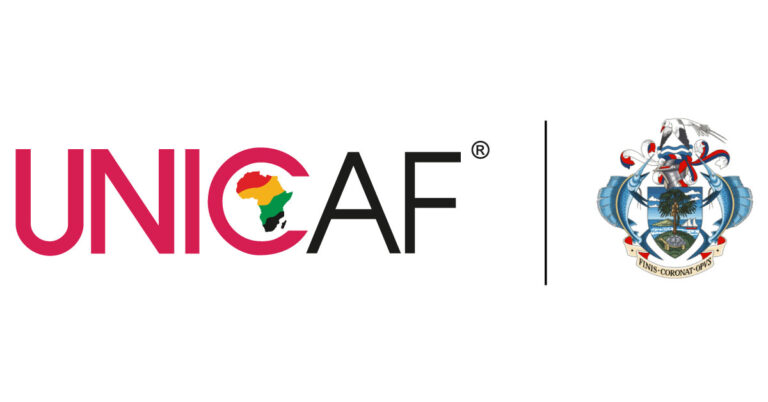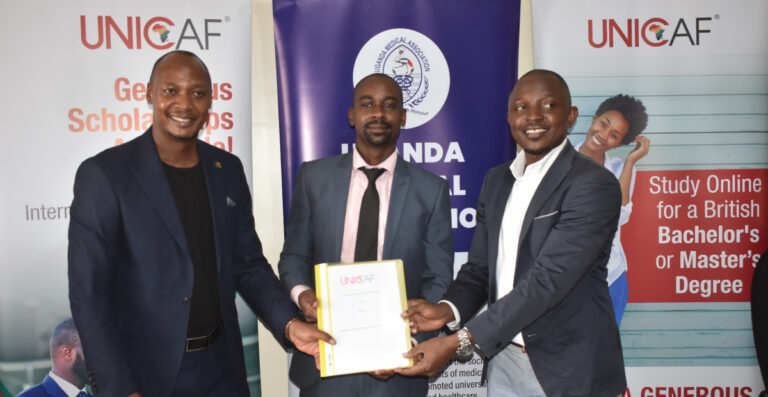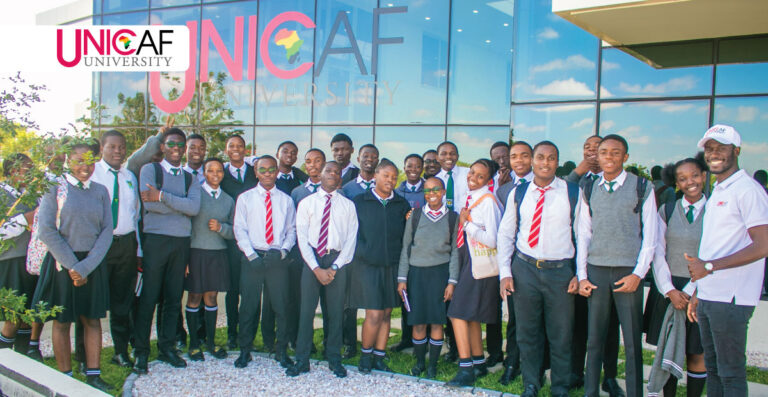The 4th Graduation Ceremony of Unicaf University in Zambia was graced by the presence of the Minister of Higher Education, Hon. Douglas Syakalima, and a large number of Vice-Chancellors of other universities. 626 new graduates from 68 different countries received their Bachelor’s, Master’s and Doctoral degree awards on the 15th of October at the Golden Peacock Hotel, with their families and friends in attendance. The theme of this year’s Graduation Ceremony was ‘Transformative Education for the 21st century.’
The Zambian Minister of Education stressed that Higher Education Institutions shoulder the responsibility of providing graduates not only with skills, knowledge and competencies but also with a robust ethical foundation, and the capability to conduct meaningful research and offer solutions towards achieving the Sustainable Development Goals, envisaged in the 2030 Agenda. Referring to the role of Unicaf University as a provider of transformative higher education, the Hon. Douglas Syakalima said: “Unicaf University has ushered in a new era of accessibility for students, transcending continents and national boundaries. The inclusive technology ecosystem, championed by this institution, stands as a beacon to be emulated by others in the academic sphere…. Transformative education urgently demands educators to adapt their teaching methodologies and curricula to align with the evolving needs of both students and the job market. The rapid pace of technological change, due to automation and artificial intelligence, exerts a palpable influence on the job market. In this volatile terrain, education’s role extends beyond the mere preparation for existing roles; it must equip students for professions that may not even exist yet.”
The University’s Chancellor, Professor Mpazi Sinjela, congratulated this year’s graduates, who, he said, are graduating at a time when the world is beset with problems, the solution of which requires new thinking and new methodologies. Furthermore, Professor Sinjela noted the following: ‘Education is the greatest facilitator for solving global problems. Transformative education is the process of deep, constructive, and meaningful learning, that goes beyond simple knowledge acquisition. Transformative education is precisely what we do at Unicaf University, teaching our students to be deep thinkers and problem solvers through critical thinking. To analyse problems and come up with solutions, to think outside the box. Our Virtual Learning methodology is the answer for training armies of professionals to tackle global problems. This methodology is even more appropriate for developing countries in Africa, Asia, and Latin America because it is also cost effective.”
The Vice-Chancellor of Unicaf University in Zambia, Dr Christine Phiri Mushibwe, stressed that Unicaf University provides education that makes students feel valued, acknowledged and included in the learning process, thereby developing innovative, creative and entrepreneurial mindsets. Addressing this year’s graduates, Dr Phiri Mushibwe said: “Whatever challenges you may face in the world today and tomorrow, always remember that you are educated and equipped with innovative skills, which foster creativity, adaptability, collaboration, communication and lifelong learning. The quality and transformative education you have attained at Unicaf University is crucial for the 21st century. The world is waiting for you to make a difference!”
Dr Kevin Andrews, Unicaf University’s Vice-Chancellor at international level, spoke about the importance of technology in higher education: “Embracing technology is not just a choice, it is a necessity. It enables us to expand the horizons of learning, making education accessible to all, irrespective of geographical and logistic constraints. The Unicaf platform, shared across our network of sister Universities in Africa and our collaborative partners, has been recently recognised as a global change agent in democratising access to higher education, with a prestigious PIEoneer award for ‘championing diversity, equity and inclusion in Higher Education”. In this digital age, Dr Andrews added, online learning promotes inclusivity, ensuring that education is not a privilege but a fundamental right for every individual. To this year’s graduates, Dr Andrews said: “You are the torchbearers of transformational education. You carry with you the legacy of Unicaf University, a legacy built on the principles of innovation, inclusivity, and academic rigour. Armed with the skills and insights gained here, you are well-equipped to navigate the complexities of the modern world’.
The representative of all graduates of 2023, Mr Kennedy Ochola Oduor from Kenya, who was awarded a Master’s degree, addressed his fellow graduates with these words: “Success is defined by the impact we make in the lives of others and by the positive change we bring to the world. Let us address the global challenges we face, such as climate change, poverty and inequality with the knowledge and skills we now possess. Let us grow into responsible, engaged world citizens, who help create inclusive, peaceful, and sustainable communities. Let us celebrate this milestone not just as an ending, but rather as a beginning. Let us go forth with courage, passion, and the belief that we have the power to make a difference. Our journey is just beginning, and I am confident that we will leave an indelible mark on this world.”
The excellent brass band of the Zambian Police provided the musical background at the Unicaf University 4th Graduation Ceremony, which was also broadcast live on Facebook for all graduates and their families who could not attend the event in person.
Written by Eva Koursoumba




